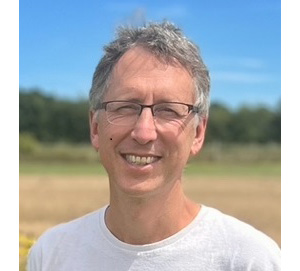Professor Nick Haddad is co-lead of the Long Term Ecological Research site at Kellogg Biological Station. He leads decades-long, landscape-scale experiments that bring scientific principles to conservation actions. He studies how landscapes diversity, including prairie strips through croplands, affect biodiversity, especially of plants and insects, and of ecosystem services including pollination, biocontrol, and decomposition. For three decades he has led the world’s largest experiment testing the role of landscape corridors in increasing dispersal of most plant and animal species, and increasing plant diversity. He has conducted long-term restoration experiments to guide conservation of rare butterflies in the face of climate and land use change. Nick brings together ideas in science and management through ConservationCorridor.org. Nick received his BS at Stanford and PhD at University of Georgia.
The global land use change most responsible for biodiversity loss is agriculture. Working in the US Midwest, we use long term plot, field, and remotely sensed data to show that 20% of cropland is consistently under-yielding and should not be farmed. Working in the Kellogg Biological Station Long Term Ecological Research site’s three decade old cropping experiment that varies land use intensity, we show how subfield conservation increases diversity of plants, pollinators, and other beneficial species. This conservation translates to ecosystem services including pollination in neighboring crops and carbon sequestration in conserved areas. Our long term research shows that subfield areas are ripe for grassland conservation across millions of acres.

Support the people who manage our natural areas and protect biodiversity in perpetuity.